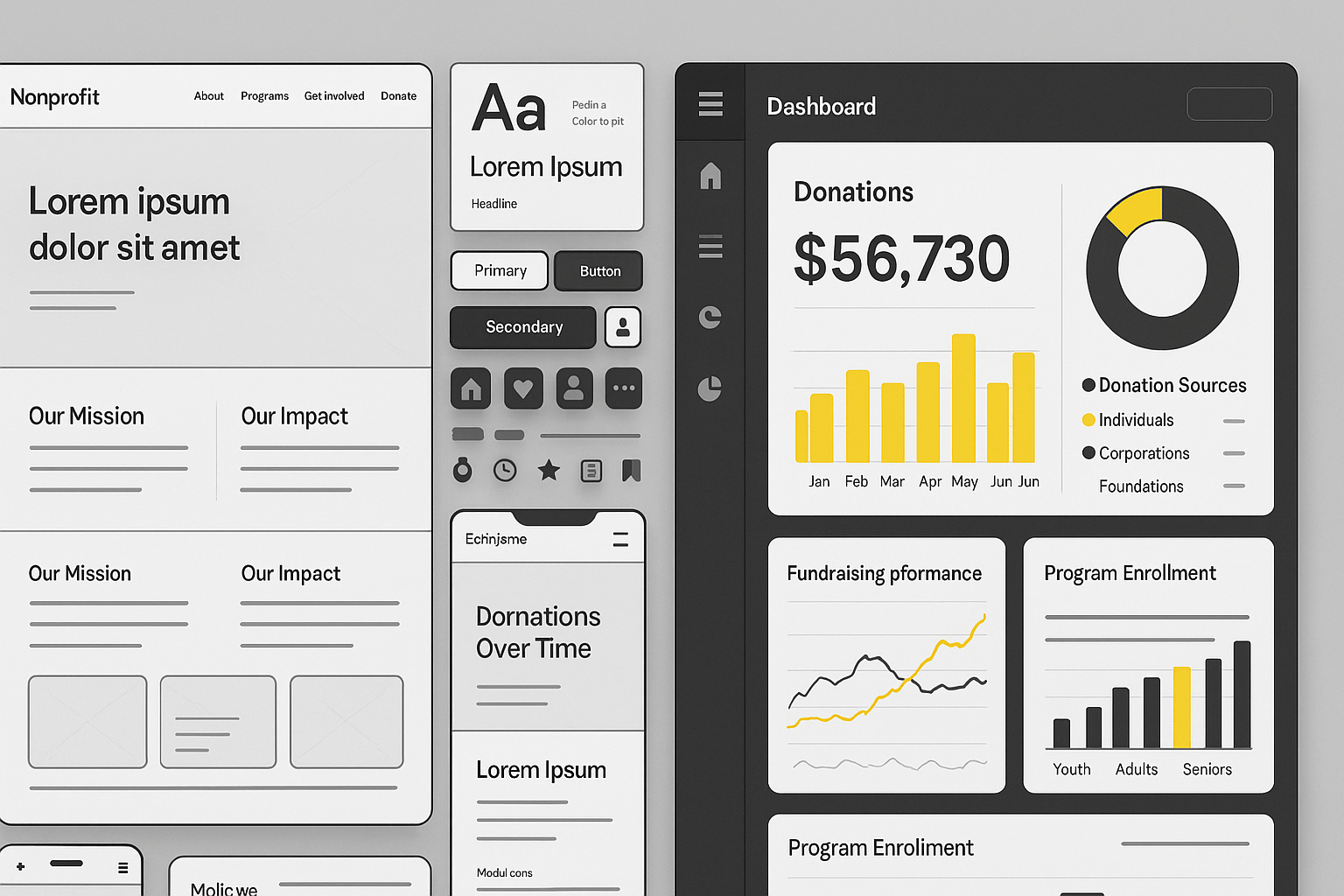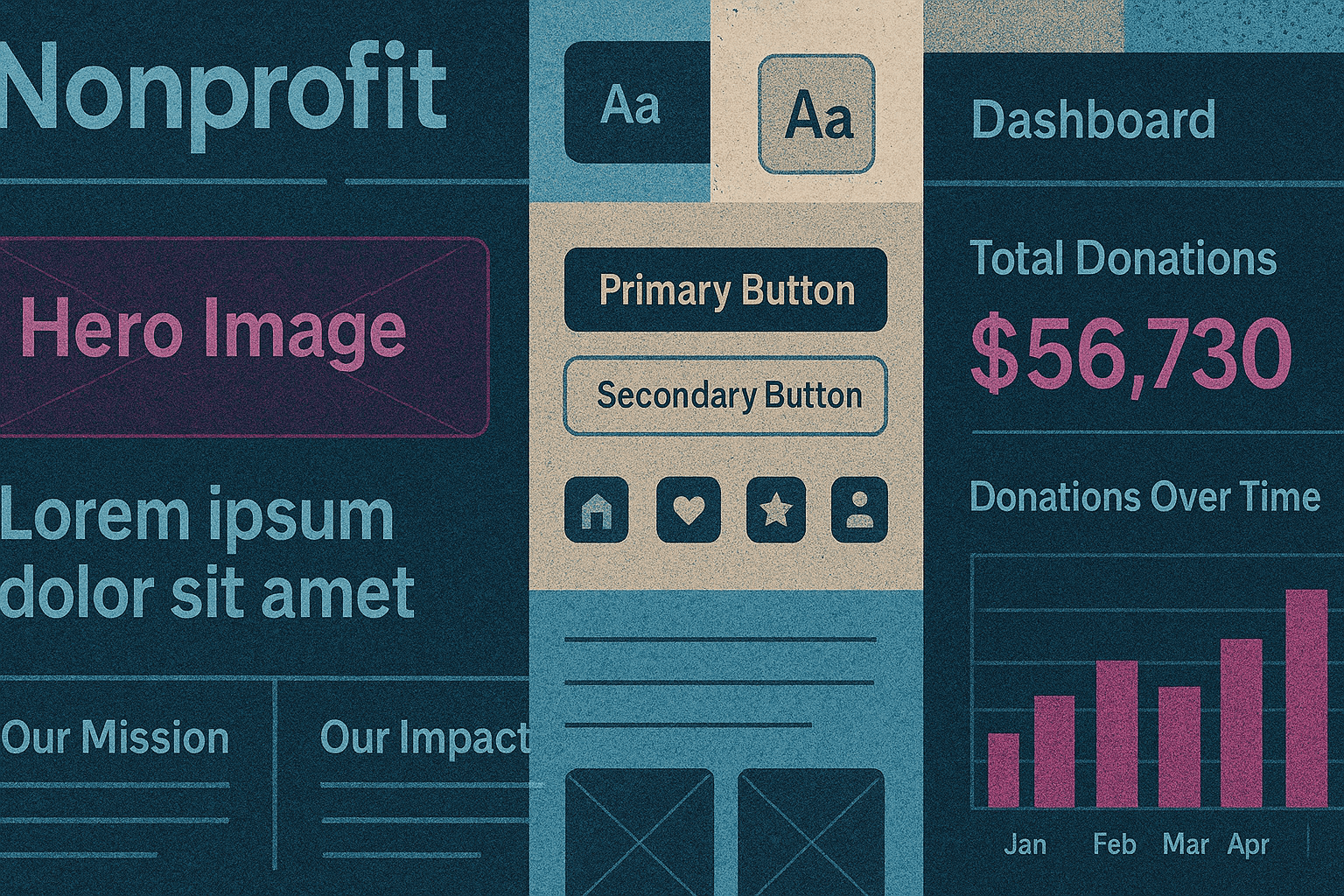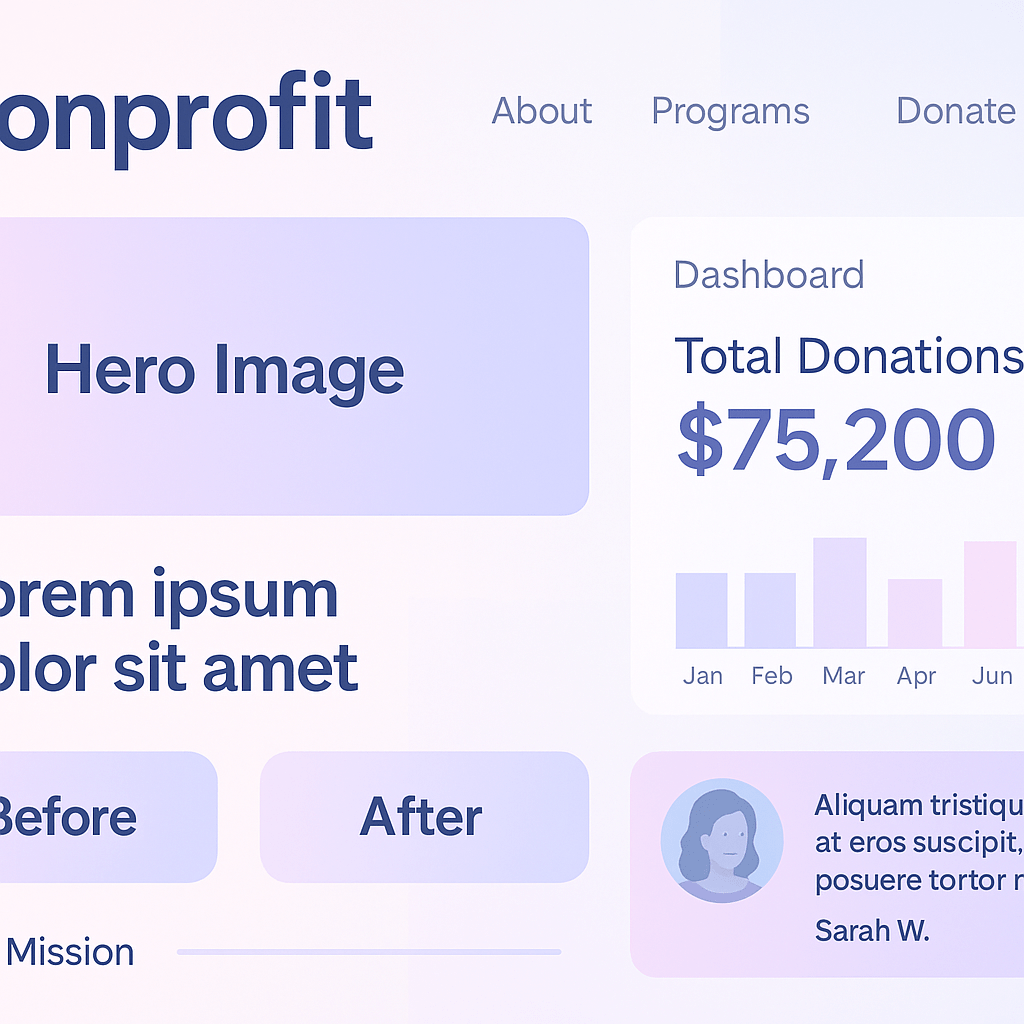Why Nonprofits Use Web Design
by Design Delulu Editorial · September 22, 2025

In today's digital landscape, nonprofits face unique challenges in reaching donors, volunteers, and the communities they serve. A well-designed website isn't just a luxury—it's an essential tool for mission success. Let's explore why web design has become crucial for nonprofit organizations and how it can transform their impact.

Why Nonprofits Need Web Design
Key Challenges Nonprofits Face
Nonprofit organizations operate in an increasingly competitive digital environment where first impressions matter more than ever. Here are the primary challenges they encounter:
- Limited Resources and Budget Constraints: Most nonprofits operate on tight budgets, making every dollar count. Without professional web design, they often struggle with outdated websites that fail to convert visitors into supporters.
- Building Trust and Credibility: Potential donors and volunteers make split-second decisions about an organization's legitimacy based on website appearance. A poorly designed site can undermine years of good work and community trust.
- Donor Engagement and Retention: Nonprofits need to tell compelling stories, showcase impact, and make donation processes seamless. Without proper design, these critical elements often get lost in cluttered, confusing interfaces.
- Volunteer Recruitment: Attracting and retaining volunteers requires clear communication about opportunities, easy sign-up processes, and inspiring content that motivates action.
How Web Design Solves These Problems
Strategic web design addresses each of these challenges head-on:
- Professional appearance instantly establishes credibility and trust
- Streamlined donation processes increase conversion rates and reduce abandonment
- Clear storytelling through visual hierarchy helps communicate mission impact
- Mobile-responsive design ensures accessibility across all devices
- SEO optimization increases visibility to potential supporters searching online

Essential Features of Web Design for Nonprofits
Must-Have Tools and Design Elements
1. Prominent Donation Buttons
Every page should feature easily accessible donation calls-to-action. These buttons should stand out visually and lead to a streamlined, secure donation process.
2. Impact Storytelling Sections
Dedicated areas for success stories, testimonials, and measurable impact data help donors understand how their contributions make a difference.
3. Volunteer Portal
A dedicated section for volunteer opportunities with clear descriptions, requirements, and simple sign-up processes.
4. Event Management Integration
Calendar integration and event pages that allow easy registration and sharing across social media platforms.
5. Newsletter Signup Forms
Strategic placement of email capture forms to build and maintain supporter relationships.
Real-World Examples
Successful nonprofit websites typically feature:
- Clean, uncluttered layouts that prioritize key actions
- High-quality images showing real impact and beneficiaries
- Progress bars or counters showing fundraising goals
- Easy-to-find contact information and transparency reports
- Social proof through testimonials and partner logos

Common Mistakes to Avoid
Typical Pitfalls in Nonprofit Web Design
- Overcomplicating the Navigation: Many nonprofits try to include every program and service in their main menu, creating confusion instead of clarity.
- Burying the Donation Process: When donation buttons are hard to find or the process involves too many steps, potential donors often abandon their giving intentions.
- Neglecting Mobile Users: With over 60% of web traffic coming from mobile devices, nonprofits can't afford to ignore mobile optimization.
- Generic Stock Photos: Using impersonal stock images instead of authentic photos of actual beneficiaries and volunteers reduces emotional connection.
- Information Overload: Cramming too much text and too many calls-to-action on single pages overwhelms visitors and reduces conversion rates.
How to Do Better
- Simplify navigation to focus on primary actions: Donate, Volunteer, Learn More
- Use authentic imagery that shows real people and genuine impact
- Implement clear visual hierarchy to guide visitors toward desired actions
- Optimize for speed to prevent visitor frustration and improve search rankings
- Test donation flows regularly to ensure they work smoothly across all devices
SEO / Growth Best Practices
Optimization Tips Specific to Nonprofits
- Local SEO Focus: Most nonprofits serve specific geographic areas. Optimize for local search terms like "food bank [city name]" or "animal shelter near me."
- Mission-Related Keywords: Target keywords that potential supporters use when searching for causes they care about. Research terms related to your specific mission area.
- Content Marketing Strategy: Regular blog posts about your work, impact stories, and community needs help establish authority and improve search rankings.
- Social Media Integration: Seamless sharing buttons and social media feeds help expand reach and improve engagement signals for search engines.
Leveraging Web Design for Visibility and Results
Strategic web design amplifies SEO efforts through:
- Fast loading speeds that improve search engine rankings
- Clear site structure that search engines can easily crawl and understand
- Schema markup for events, organizations, and articles to enhance search result appearance
- Internal linking strategies that keep visitors engaged and improve page authority
- Accessible design that serves all users and meets search engine accessibility requirements
The Path Forward
Web design for nonprofits isn't just about aesthetics—it's about creating digital experiences that inspire action, build trust, and maximize impact. Every design decision should align with your mission and make it easier for supporters to engage with your cause.
The organizations that invest in professional web design see measurable improvements in:
- Online donation conversion rates
- Volunteer sign-up numbers
- Email list growth
- Event attendance
- Overall brand recognition and trust
In our interconnected world, your website often serves as the first point of contact between your organization and potential supporters. Make that first impression count with thoughtful, strategic web design that serves your mission as effectively as it serves your audience.
Ready to improve your nonprofit's web presence with professional web design?
👉 Explore Web Design at Design Delulu
This post was crafted to help nonprofits understand the transformative power of professional web design. For personalized guidance on your organization's digital strategy, connect with the experts at Design Delulu.
For more resources and inspiration: